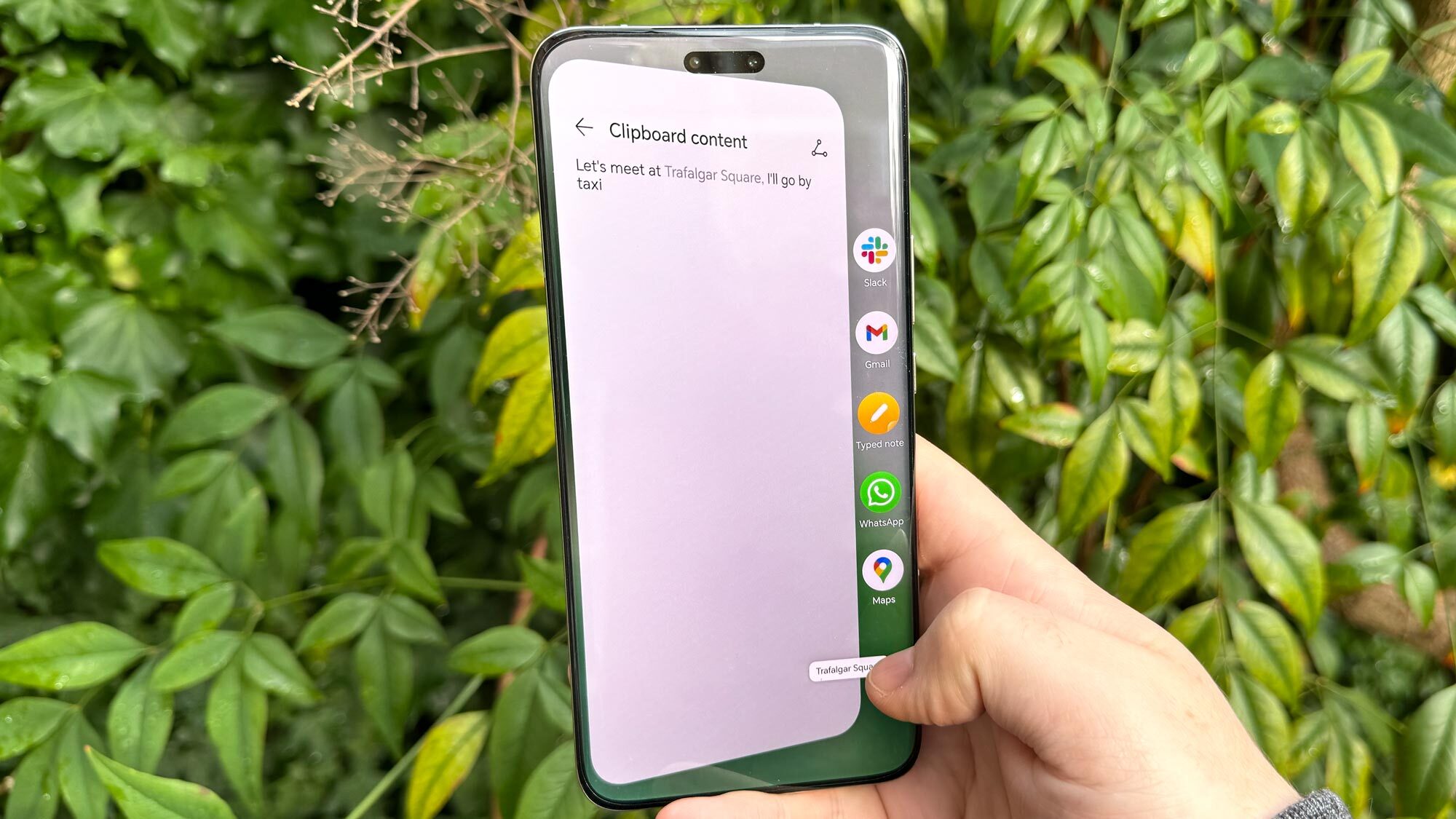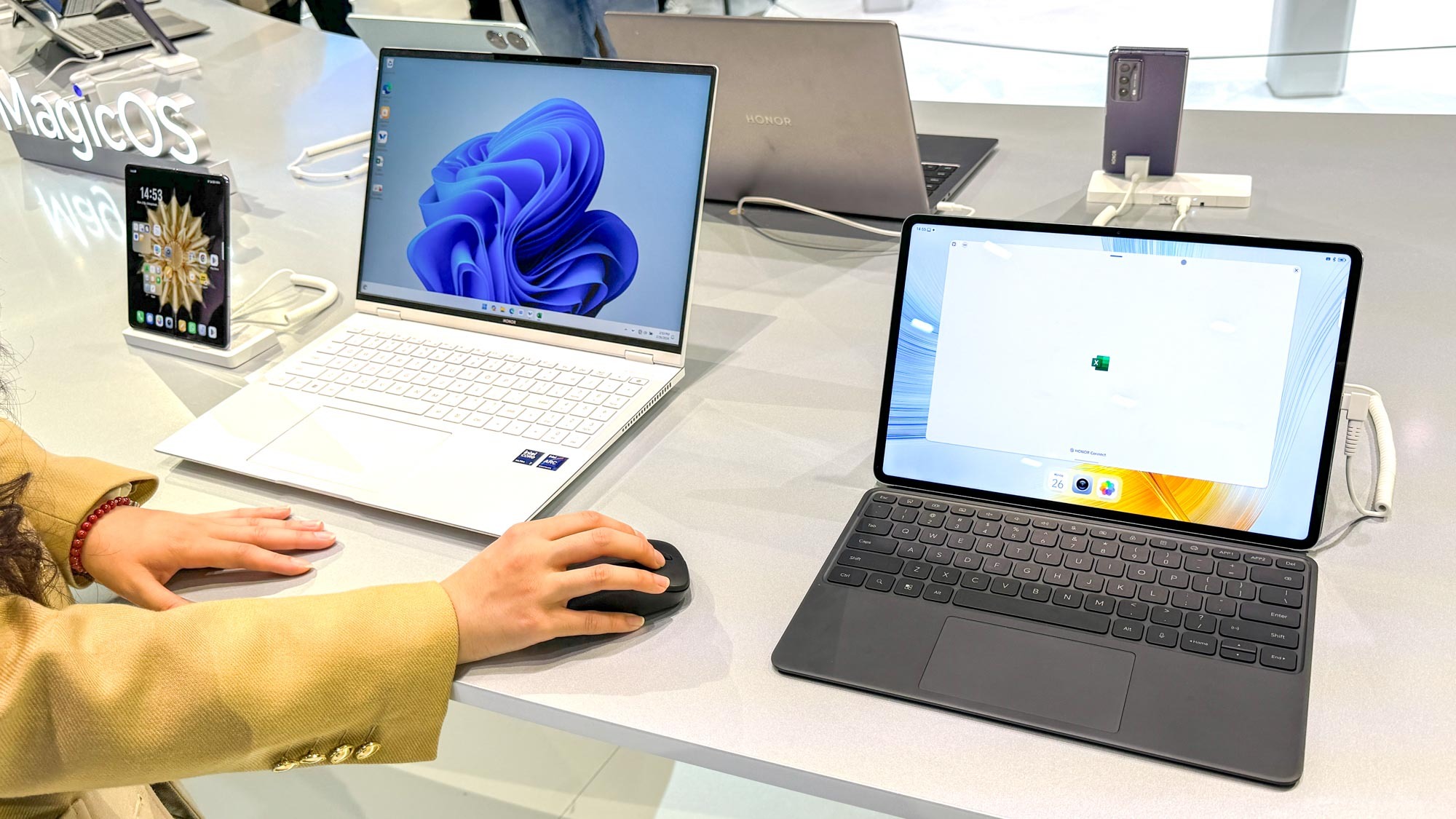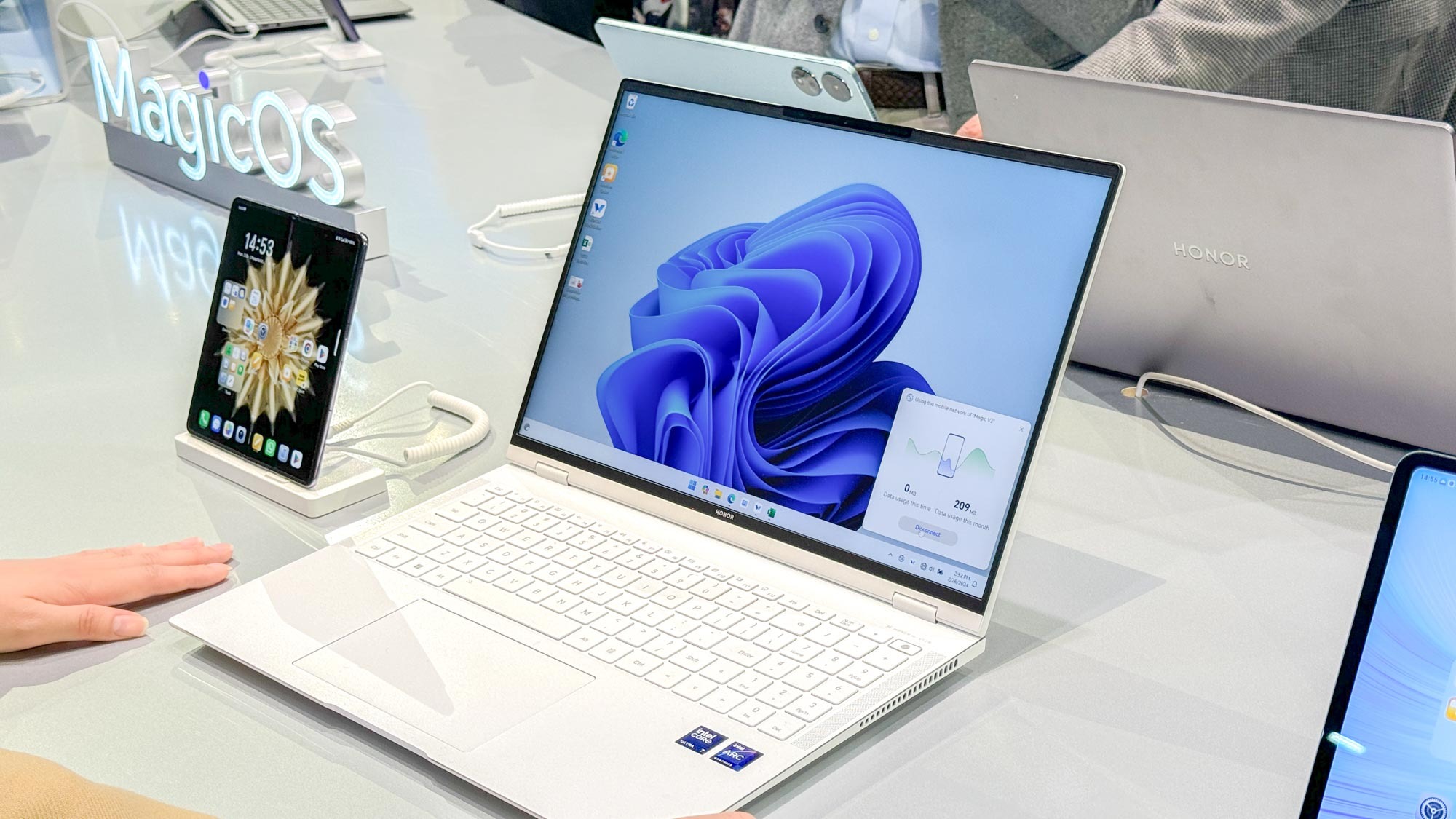
I remain skeptical of the way artificial intelligence has been used recently in smartphones. AI and machine learning have been present in phones for years already, helping manage and improve phone performance in all kinds of areas. But lately, AI has stepped into the spotlight as the selling point of choice for the Samsung Galaxy S24 and Google Pixel 8, and possibly the iPhone 16 later this year.
But to me, many of the ways that this AI surfaces involves gimmicks. That's not to say that things like generative image editing or live in-call translation are not impressive feats of computing, nor that they don't add any value to the phones they're on. But it's not yet clear if these features are going to be something users will want to keep using once the novelty wears off.
Contrast that with what Honor showed off at MWC 2024. That phone maker's approach to AI-powered features strikes me as more immediately useful than what we're seeing elsewhere. And perhaps as the AI hype train slows down, this is how we're going to see AI featured on phones over the long term.
What Honor gets right with AI
What caught my attention first-off was Honor's MagicRing system. This is similar to Apple's Continuity features across iPhone, iPad and Mac, but the difference with the Honor version is that you can use a phone as an additional window as well as a tablet (handy when you have a big-screen foldable like the Magic V2). That approach lets you freely access files on all the devices and move those files between them.
The AI isn't obvious here, but it's around to help you manage the different device windows, and help you sling images and documents between them.

There's also the Magic Portal feature on the new Magic6 Pro phone, which tries to guess which app you'll want to share a selected piece of content through. You can then transfer that to the app you want in a single step by dragging the content over to a set of shortcuts appearing on the left or right edge of the screen. As I mentioned in my Magic6 Pro review, it's not as ambitious as what rivals are doing, but in a way that's a good thing — I can see how Magic Portal fits in with ways I already use my phone.

Behind all that, Honor's focus on on-device processing, even for things like Llama 2 chatbot integration (currently undergoing testing on the Magic6 Pro) feels like a strong path for the company to go down. Not only is it a brilliant flex of the chipsets and NPUs that Honor has fitted into its new devices, but hopefully it means these features will always work without extra paid updates or subscriptions getting in the way. That's quite a contrast with what Samsung has threatened to do in future with the Galaxy S24's Galaxy AI features.
Sadly, all of this is limited to Honor products. You might expect this given how Samsung and Apple treat their own cross-device features, but the similar Smart Connect app from Motorola and Lenovo (another standout on the MWC show floor in Barcelona) only needs one of its phones to function. This seems optimal for users who then have greater freedom in choosing devices, but could be a hard sell for manufacturers hoping to get users invested in their whole ecosystems.
I won't claim to have powers of clairvoyance, so maybe more creative generative AI features will prove a big hit with users, and it'll become another key tool in a smartphone's arsenal of abilities. Plus when it comes to Honor's stuff, the only feature I've been able to try myself outside of a controlled demo was Magic Portal. So maybe MagicRing won't be the perfect productivity package I want it to be.
Still, I believe that AI's future is in the background of a phone's processes rather than the foreground for the majority of users. And of all the manufacturers who've been shouting about their AI so far, Honor's implementation best fits that particular bill.







